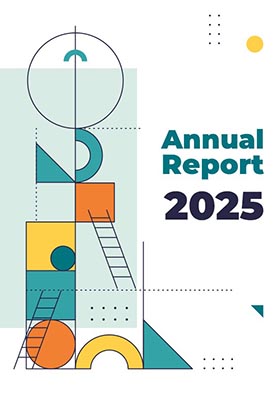JERUSALEM | Al-Quds University recently held its second annual conference of undergraduate research which is intended to foster the research skills of Palestinian undergraduate students and promote domestic scientific production to help meet the pressing needs of the Palestinian community.
Organized by the office of the Deanship of Scientific Research, the conference saw the participation of dozens of undergraduate students from different Palestinian universities, and it was attended by Executive Vice-President Dr. Hassan Dweik, Ministry of Higher Education’s representative, Dr. Ehab Qubbaj, vice-presidents, faculty deans, professors, researchers, and students.
Dean of Scientific Research Dr. Elham Khatib inaugurated the conference, highlighting its vital role in booming scientific production through offering dedicated students a platform to present their creative ideas and carry out valued researches under the supervision of highly-qualified research supervisors from the various academic programs. She noted that the launching of the undergraduate Research Clubs at Al-Quds University last year came in response to the growing need to engage Palestinian undergraduate students in the scientific effort and to equip them with the tools necessary for bolstering their scientific knowledge.
With respect to that, Dr. Khatib emphasized the university’s strategy of restructuring the teaching of scientific research courses to make them rather empirical and more ready to meet the international standards of scientific research.
Executive Vice-President Dr. Hassan Dweik said that the university “is utilizing all its resources to enable its students to build creative research projects and expand their scientific contributions”. He called on the students to keep up-to-date with the latest publications and advances in the area of scientific research both locally and internationally.
Dean of Al-Quds Bard College for Arts and Sciences Professor Daniel Terris particularly praised the ideal research environment at Al-Quds University that has “shifted the students’ interests from the traditional approach of theoretical learning to researching by the help of committed faculty and research experts”.
He maintained that “researching has the potential to enable the university student to both acquire new knowledge and activate prior one”.
In this year’s edition of the undergraduate research forum, a total of ninety-two research papers and posters, which had been prepared by undergraduate students from different universities in the West Bank and Gaza Strip, were presented. Out of these, some sixty-five works were approved based on rigorous assessment by the faculties’ research committees.
Along with the participants from Al-Quds University, who presented 50 research papers and scientific posters in the various disciplines, there were participants from Birzeit University, Hebron University, Hebron Polytechnic University, Bethlehem University, and Arab American University. Students from Palestine University in Gaza also joined via video conference.
In recognition of the outstanding contributions of the majority participants, prizes and certificates were awarded at the end of the conference.
Over the past few years, Al-Quds University has developed a growing assortment of new projects, research tools, and forums that seek to exploit the possibilities afforded by the digital revolution to offer a collaborative research environment for its researchers of all levels.










































































































